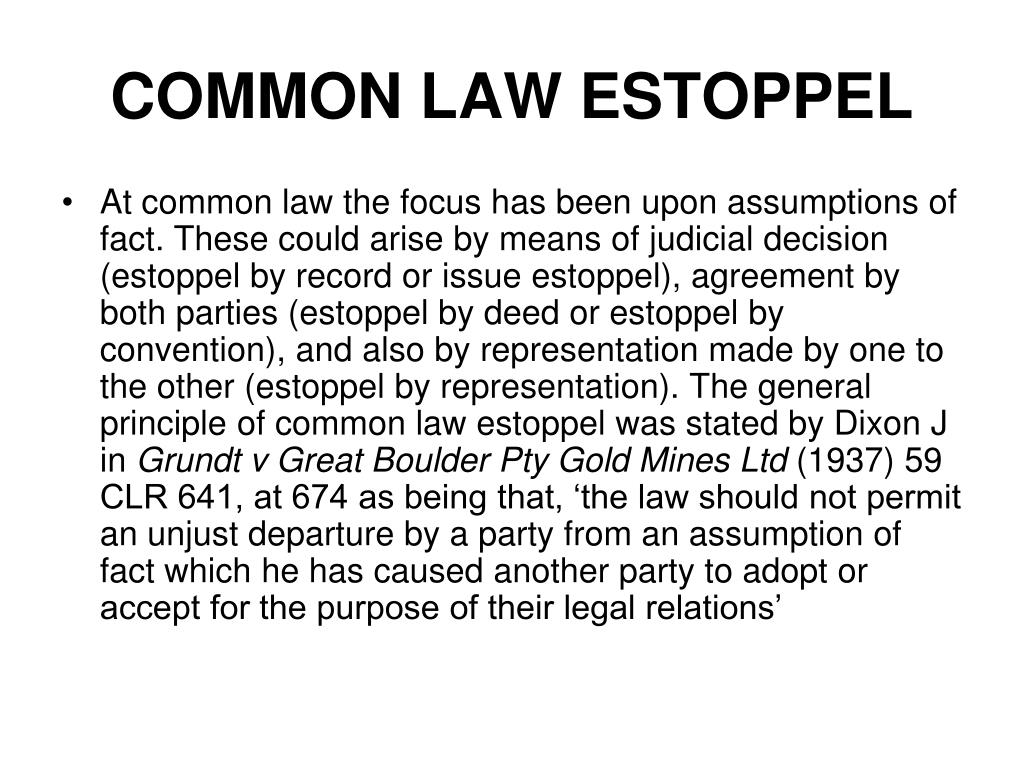Estoppel is a legal principle that prevents a person from denying or contradicting a previous statement or action that has been relied upon by another person to their detriment. In other words, estoppel prevents a person from going back on their word or changing their position in a way that would be unfair or detrimental to someone else who has relied on their previous statements or actions.
There are several types of estoppel, including promissory estoppel, equitable estoppel, and estoppel by deed. Promissory estoppel occurs when one person makes a promise to another person, and the second person relies on that promise to their detriment. For example, if person A promises person B that they will sell them a piece of land, and person B spends money preparing the land for development based on that promise, person A may be estopped from denying the promise or backing out of the deal.
Equitable estoppel, also known as estoppel in pais, occurs when a person's conduct or silence leads another person to believe a certain thing, and the second person relies on that belief to their detriment. For example, if person A tells person B that they have no ownership interest in a piece of property, and person B relies on that information and purchases the property, person A may be estopped from later claiming ownership of the property.
Estoppel by deed occurs when a person's actions or conduct are inconsistent with a previous statement or representation made in a deed or other legal document. For example, if person A sells a piece of property to person B, but then continues to use the property as if they were still the owner, person B may be able to use estoppel by deed to prevent person A from denying the sale or claiming ownership of the property.
Estoppel is often used as a defense in legal disputes, as it can prevent a party from making arguments or raising defenses that are inconsistent with their previous statements or actions. It is also used to enforce contracts and prevent parties from going back on their word or changing their position in a way that would be detrimental to the other party.
In summary, estoppel is a legal principle that prevents a person from denying or contradicting a previous statement or action that has been relied upon by another person to their detriment. It is used to enforce contracts and prevent unfair or detrimental changes to a person's position.







